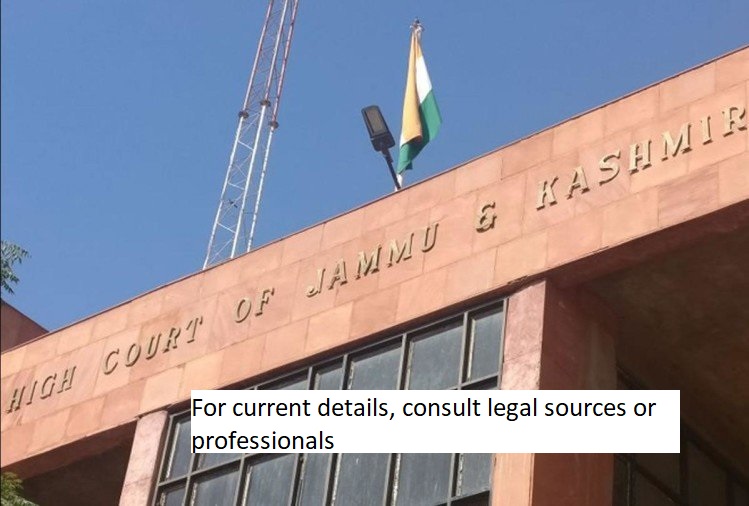


The legal scenario under consideration revolves around a construction project and subsequent dispute resolution in the Jammu & Kashmir and Ladakh High Court. The central issue is the expansion of the project scope without a formal amendment to the original contract, leading to disagreements and legal proceedings.
Initiating with the background, the respondent issued a Notice Invited Tender (NIT) on January 11, 2014, for the construction of a single-lane bridge. Following this, the petitioner successfully secured the bid, and the parties entered into an agreement on April 26, 2014. This initial agreement contained an arbitration clause, providing a mechanism for resolving disputes.
However, complications arose when, before the commencement of the project, the respondent unilaterally increased the scope and cost of the work. Notably, this expansion was undertaken without the formalization of a new agreement or an amendment to the original contract. Despite the absence of a written understanding for the additional task, the petitioner proceeded to construct a two-lane bridge instead of the initially agreed-upon single-lane bridge.
The dispute unfolded concerning payments for the expanded work, prompting the petitioner to file a writ petition. The High Court intervened, disposing of the petition with a directive to the respondent to consider the claim within a specified timeframe. However, the respondent failed to comply with this directive, prompting the petitioner to invoke the arbitration clause. Subsequently, the petitioner approached the Court for the appointment of an arbitrator under Section 11 of the Arbitration and Conciliation Act.
In response to the petitioner's move, the respondent raised objections to the maintainability of the arbitration petition on various grounds. The primary objection asserted that no valid contract existed beyond the initial agreement for a single-lane bridge, rendering the application non-maintainable for arbitration. The respondent emphasized the absence of a written contract for the additional two-lane bridge construction, contending that arbitration could not be invoked.
Moreover, the respondent relied upon Article 299 of the Constitution of India to argue against the possibility of a contract by implication. It also cited Section 7 of the Arbitration and Conciliation Act, claiming that even if an agreement by implication existed, the arbitration clause must be in writing, rendering the dispute non-arbitrable.
In response to these objections, the petitioner presented counter-arguments to establish the validity of their claims. The petitioner contested the notion that the work was undertaken solely based on a public announcement during the foundation stone laying ceremony, as asserted by the respondent. Instead, the petitioner highlighted administrative actions taken subsequent to the announcement, such as the revision of the Detailed Project Report (DPR), approval of the design for a two-lane bridge, and the execution of the work according to the revised DPR.
Furthermore, the petitioner invoked Section 7(4)(b) of the Arbitration and Conciliation Act, 1996, arguing that the exchange of communications between the parties clearly established the existence of a written agreement. This stance aimed to counter the respondent's reliance on Article 299 of the Constitution, asserting that the dispute did indeed arise from a written agreement.
Even in the scenario where it was assumed that no additional contract existed, the petitioner contended that the respondent could not take advantage of the alleged non-existence of a contract after acknowledging the completion of work with their consent and approval. Reference was made to Section 70 of the Contract Act, arguing that, under this section, the respondent could not escape liability, as the petitioner was not executing the work pro bono.
The High Court's observations and ultimate decision shed light on the critical aspects of the case. Despite the absence of a formal amendment or a new agreement for the expanded scope of work, the Court acknowledged the respondent's administrative actions, including the revision of the DPR, approval of the design for a two-lane bridge, and the execution of the work according to the revised DPR.
The High Court held that the arbitration clause contained in the original contract would govern disputes arising from additional work carried out without the execution of a formal agreement. It emphasized that when a contractor, initially tasked with constructing a single-lane bridge, is subsequently directed by the employer to expand the scope to build a two-lane bridge without formalizing a new agreement or amending the original contract, the terms of the initial contract, including the arbitration clause, extend to cover the additional work.
In conclusion, the detailed legal proceedings and arguments presented in this case underscore the complexities that can arise in construction projects when the scope of work is expanded without a corresponding formalization of agreements. The High Court's decision provides clarity on the applicability of the arbitration clause in such scenarios, offering valuable insights into the legal implications of unilaterally expanded project scopes in contractual relationships.
TAGS: construction project dispute resolution Jammu & Kashmir and Ladakh High Court project scope original contract arbitration clause.